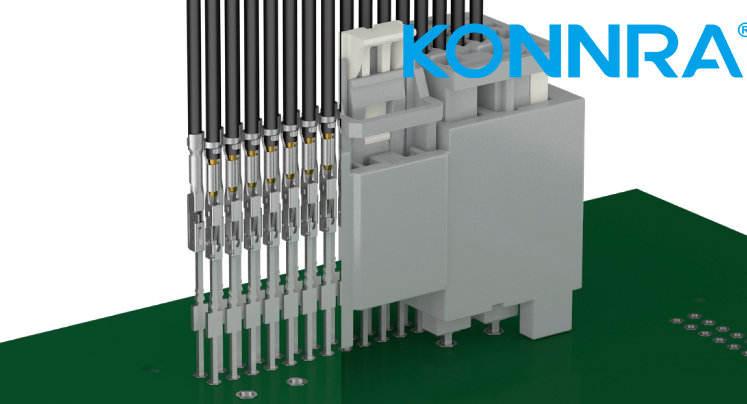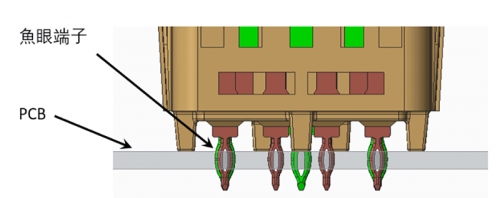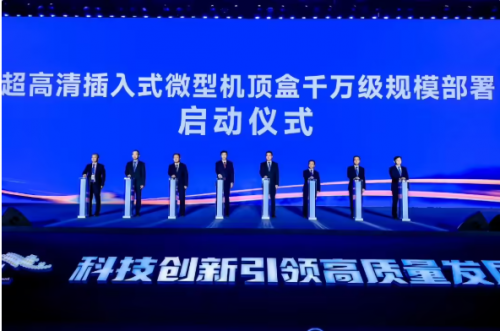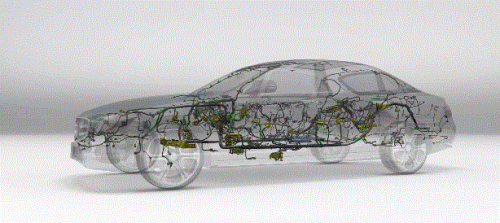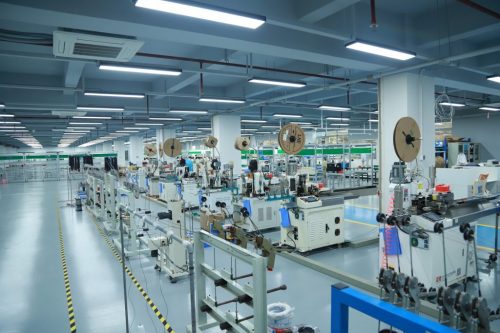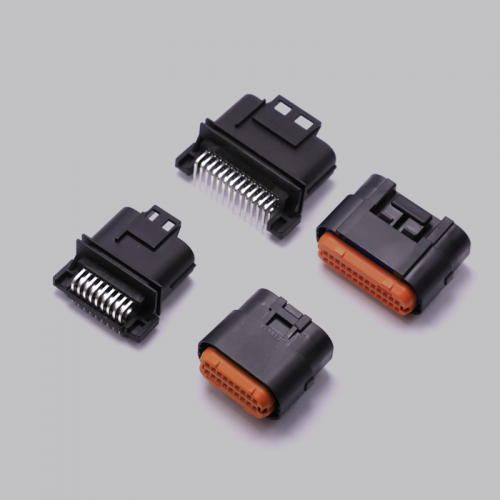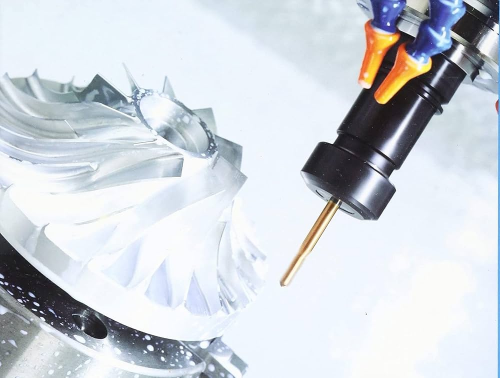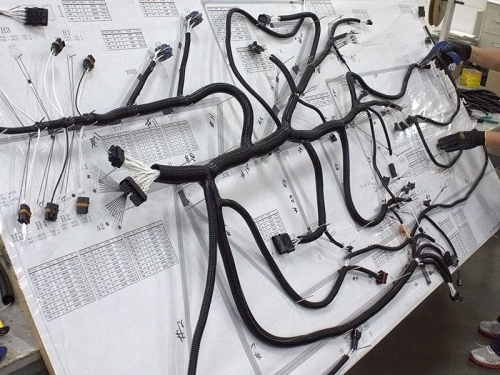(Teach you in eleven steps how to choose the best car harness manufacturers and what aspects to consider.)
Are you feeling confused about finding a reliable car harness manufacturer? As a professional connector solutions provider, Konnra specializes in the design, R&D, production, and sales of electrical connectors and harnesses. We deeply understand how important it is to find the right partner in this highly competitive market. Many customers often feel at a loss when choosing a manufacturer because it not only affects the quality and performance of the product but also the success of the overall project. If you are also troubled by this, don’t worry! In this blog, we will detail how to find the best car harness manufacturer. From understanding the market background to evaluating the manufacturer’s technology and services, Konnra will provide you with comprehensive guidance to help you make an informed choice.
Understand the Importance of Car Harnesses in the Overall Project
Functions of Car Harnesses
Car harnesses are key components that connect various electronic parts within a vehicle. They not only transmit power but also convey control signals, ensuring the normal operation of systems like engine management, body electronics, and infotainment systems. High-quality car harnesses ensure system stability and reliability, thereby enhancing the vehicle’s overall performance and safety. For example, stable power and signal transmission in complex driving environments can prevent system failures, ensuring driving safety and comfort.
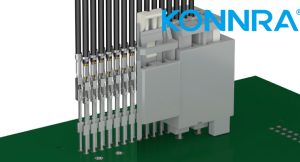
Product Quality and Reliability
Choosing high-quality car harnesses is crucial. Poor quality harnesses can lead to unstable power transmission, signal interference, and even safety hazards. Reliable harnesses use high-quality wires and insulation materials to ensure good performance and safety over long periods. Therefore, understanding the manufacturer’s product quality and reliability is the primary task when selecting a suitable supplier. Ensure that their products meet industry standards and certifications, such as ISO 9001 and TS 16949. These standards can serve as a basic criterion for judging product quality.
So, with so many car harness manufacturers on the market, what aspects should you analyze to find the best car harness manufacturers?
Step 1: Conduct Research on Major Manufacturers in the Market
Well-known Brands and Emerging Brands
When choosing a manufacturer, consider both well-known brands and emerging brands in the market. Well-known brands usually offer higher guarantees in terms of technology and quality, while emerging brands may have advantages in innovation and pricing. By comparing the products and services of different brands, you can find the partner that best meets your needs. For example, well-known brands may be more mature in production processes and after-sales services, while emerging brands may offer more flexible customization services and competitive prices.
Manufacturer Background Investigation
Conducting a background investigation on the manufacturer is an important step in selecting a partner. You can understand its status and reputation in the industry by reviewing the company’s history, customer evaluations, and industry recognition. For example, you can obtain detailed information about the manufacturer through industry reports and customer feedback. Understanding the manufacturer’s market share, technical patents, and innovation capabilities helps evaluate its overall strength and development potential.
Step 2: Evaluate the Manufacturer’s Technology and Innovation Capability
Technical Level and Production Capacity
Evaluating the manufacturer’s technical level and production capacity is crucial. Understanding their investment in technology R&D, production processes, and equipment helps determine whether they can produce high-quality car harnesses. For example, automated production lines and advanced manufacturing equipment can improve production efficiency and product quality. Key indicators include whether the manufacturer has advanced cutting, stripping, and terminal equipment, as well as automated testing systems.
Innovation and Patents
Examine the manufacturer’s innovation capabilities in the car harness field and whether they have relevant patents or awards. Manufacturers with strong innovation capabilities usually offer more advanced and efficient solutions to meet the ever-changing market demands. For example, check if the manufacturer has made breakthroughs in new material applications and intelligent harness design. Understanding their leading position and innovation achievements in the industry helps judge their future development potential.
Looking for car harness solutions? KONNRA automotive connectors offer high reliability, durability, and shock resistance. We have extensive experience in the automotive industry’s connector and harness manufacturing.
Step 3: Examine the Manufacturer’s Quality Control and Certification
Quality Management System
Check if the manufacturer has passed international quality management system certifications such as ISO 9001, ensuring their production processes and quality control meet standards. Manufacturers with these certifications usually have stricter quality management, and product quality is more guaranteed. For example, ISO 9001 certification requires enterprises to establish a rigorous quality management system throughout the production process, ensuring effective control at every stage from raw material procurement to production and final inspection.
Product Certification and Testing
Confirm whether the manufacturer’s products have passed relevant safety certifications and rigorous quality tests, such as TS 16949. These certifications and tests ensure the product’s reliability and safety in various usage environments. For example, TS 16949 certification focuses on quality management systems in the automotive industry, ensuring the manufacturer’s products meet high standards. Understanding the product’s durability, interference resistance, and environmental adaptability helps judge its actual performance.
Step 4: Evaluate the Manufacturer’s Material Selection
Material Standards
Understand the manufacturer’s standards for selecting harness materials, ensuring the materials used meet durability and safety requirements. High-quality materials can improve product reliability and lifespan, reducing faults and maintenance costs. For example, check if the manufacturer uses high-temperature resistant, anti-aging insulation materials and high conductivity, corrosion-resistant wire materials. These are important indicators of their material selection standards.
Step 5: Focus on Customer Service and After-Sales Support
Customer Service Quality
Assess the quality of the manufacturer’s customer service, including response speed, professionalism, and service attitude. Excellent customer service can promptly resolve issues during cooperation, ensuring the project’s smooth progress. For example, does the manufacturer offer 24-hour customer support and have a professional technical team ready to address customer problems? These are important indicators of customer service quality.
After-Sales Support and Guarantee
Understand if the manufacturer provides comprehensive after-sales service and quality assurance, such as product warranty, repair services, and return policies. Good after-sales support can enhance customer satisfaction and establish long-term stable partnerships. For example, does the manufacturer offer regular technical support and maintenance services? Do they have a rapid response mechanism for fault handling? These ensure customers have no worries during use.
Step 6: Compare Product Prices and Cost-Effectiveness
Price Comparison
Compare the product prices of different manufacturers to find cost-effective car harnesses. Reasonably priced and high-quality products can reduce procurement costs and improve the overall project benefits. For example, through market research and competitive bidding, understand the price levels and discount policies of different manufacturers, and choose the most cost-effective products.
Cost and Benefit Analysis
Analyze the product’s cost and benefits, considering long-term reliability and durability, not just the initial purchase price. High-quality products can reduce faults and maintenance costs during use, improving economic benefits. For instance, through lifecycle cost analysis, evaluate the total cost of the product during its lifespan, including procurement cost, maintenance cost, and fault losses, and choose the lowest total cost solution.
Step 7: Understand Customer Evaluations and Reputation
User Reviews and Feedback
Check other customers’ reviews and feedback on the manufacturer’s products to understand the real user experience and satisfaction. User reviews provide a comprehensive understanding of the manufacturer’s product quality and service level. For example, you can obtain user feedback and opinions through online reviews, customer cases, and industry forums as important references for choosing a manufacturer.
Industry Reputation and Recommendations
Refer to recommendations from industry experts, car manufacturers, and repair shops, and choose manufacturers with good reputations. Industry recommendations often carry more authority and reference value, helping you make a more informed choice. For example, check if the manufacturer is recognized by industry associations or has received important industry awards. These are important indicators of their industry status and reputation.
Step 8: Conduct Necessary Sample Testing and On-site Visits
Sample Testing
Request samples from the manufacturer for testing to personally experience the product’s quality and performance. Sample testing allows you to intuitively understand whether the product meets project requirements and quality standards. For instance, conduct tests on the sample’s durability, interference resistance, and environmental adaptability to ensure its reliability in actual use.
On-site Visits
Arrange on-site visits to the manufacturer’s production base to understand their production processes, craftsmanship, and management, enhancing trust. On-site visits provide a comprehensive understanding of the manufacturer’s actual production capacity and management level, providing important references for cooperation decisions. For instance, through on-site visits, you can understand the manufacturer’s production equipment, production environment, and quality control processes to determine whether they have stable production capacity and strict quality management.
Step 9: Understand the Manufacturer’s Cooperation Cases and Customer Groups
Cooperation Case Analysis
Understand which well-known car brands or companies the manufacturer has cooperated with, and evaluate their influence and reputation in the industry. Successful cooperation cases often reflect the manufacturer’s strength and service level. For example, understand the manufacturer’s cooperation history with globally renowned car brands, analyze their performance and customer feedback in different projects as important references for choosing a partner.
Customer Groups and Market Coverage
Understand the manufacturer’s customer groups and market coverage, and choose manufacturers with high market recognition. Extensive market coverage and diverse customer groups can prove the manufacturer’s comprehensive strength and product adaptability. For instance, check if the manufacturer has a stable customer base in major global car markets and whether they can meet the demands of different regions and markets. These are important indicators of their market competitiveness.
Step 10: Evaluate the Manufacturer’s Customization and Flexibility
Customization Needs
Understand if the manufacturer provides customization services to meet specific models or special needs for harness production. Customization services can better adapt to the special requirements of the project, improving product matching and application effects. For example, check if the manufacturer can adjust product design and craftsmanship according to customer needs and if they can provide flexible production plans and delivery solutions. These are important indicators of their customization service capability.
Cooperation Flexibility
Evaluate the manufacturer’s flexibility in cooperation methods, order processing, and delivery times to ensure they can meet the company’s procurement needs. Flexible cooperation methods can improve project execution efficiency and reduce communication costs and risks. For example, check if the manufacturer can quickly respond to order demands and adjust production plans and delivery times flexibly according to project progress. These can improve project execution efficiency and cooperation satisfaction.
Step 11: Evaluate the Manufacturer’s Logistics and Delivery Capability
Logistics Management
Evaluate the manufacturer’s logistics management capability, including transportation, warehousing, and distribution services, to ensure timely delivery. Good logistics management can improve delivery efficiency and reduce project risks caused by delays. For example, check if the manufacturer has a complete logistics network and distribution system and if they can provide flexible transportation and warehousing solutions. These are important indicators of their logistics management capability.
Supply Chain Management
Understand the manufacturer’s supply chain management to ensure they can respond to market demand changes promptly and maintain stable supply capability. A stable supply chain can ensure project continuity and stability, avoiding project delays caused by supply interruptions. For example, check if the manufacturer has stable suppliers and raw material reserves and if they can quickly respond to market changes. These are important indicators of their supply chain management capability.
Conclusion and Recommendation
When choosing a car harness manufacturer, it is crucial to consider factors such as product quality, technical level, innovation capability, customer service, and cost-effectiveness. Since its establishment in 2004, Konnra has become a leader in the field of electrical connectors and harnesses with 22 years of rich experience. We not only have internationally leading connector technology and multiple invention patents but also ensure excellent quality with unique processing technology, greatly improving production efficiency.
Whether in domestic or international markets, Konnra has won widespread recognition with its high-quality products and excellent customer service. Our extensive experience in mass production and supply ensures that every customer’s needs are met. Through our products, you will experience higher project implementation success rates and vehicle safety and reliability.
Choose Konnra car harnesses now to enjoy our professional customization services and high-standard materials and environmental standards, ensuring every step of your project goes smoothly. Konnra, your worry-free solution for car harness needs!
